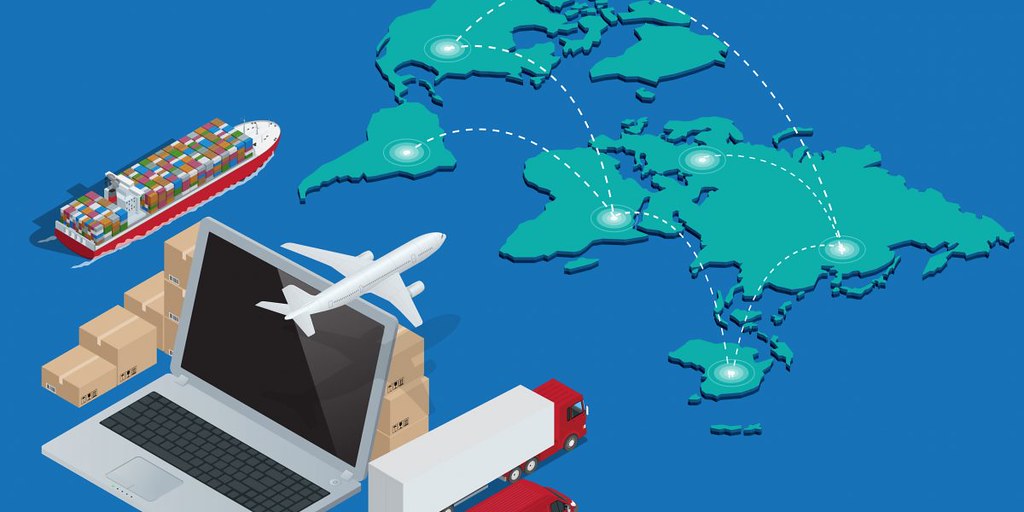CBSA Going Paperless for Export Declaration
The Canada Border Services Agency ("CBSA") issued Customs Notice 19-14 "Mandatory electronic export reporting for exporters" in which it is announced that paper reporting will end on June 30, 2020. Canadian exporters will no longer be permitted to file Form B13A to report exports of goods.
What are the alternatives?
As of June 30, 2020, it will be mandatory for all exporters and their service providers such as freight forwarders to file export declarations electronically. There will be two options to report the export of goods electronically:
1) Canadian Export Reporting System (CERS)
Available only after March 16th, 2020 and you can register with CERS by submitting a completed CERS Application Form to the Commercial Registration Unit: [email protected]
2) G7 Export Reporting Electronic Data Interchange (G7-EDI).
G7-EDI currently exists and you can reach out to Global eTrade Services for the export service.
Canadian exporter with goods values valued at CAD 2000 or more destined to any country other than the U.S., Puerto Rico or the U.S. Virgin Islands, must complete an export declaration for each shipment exported from Canada. Regulated and controlled goods exported from Canada, must also be reported, regardless of value.
Canadian exporters must complete an export declaration for any export of goods and/or technology to any country (except the United States, Puerto Rico and the U.S. Virgin Islands) valued over at $2000 CDN or more (subject to regulated exceptions eg: - entering or leaving Canada (water, air, land) temporarily.
Why this is done?
- Reporting of export goods allows the government to review the information and conduct a risk assessment and enables Statistics Canada to compile export trade data. This process is similar to good being imported into Canada and eManifest needs to be submitted for risk assessment.
- The CBSA conducts a risk assessment as to whether the goods should have an export permit or are destined for a sanctioned country or person.
- If the package/shipment does not include an export declaration, the CBSA may detain the goods and, thereby, delay the transportation of the goods to its destination.
- If the CBSA randomly detains your goods, you will be asked to provide information about the goods. This could delay the export weeks, months or years. The detained goods may be seized as a forfeit and destroyed.
What is exempted?
Certain goods do not require an export declaration. The exempted goods are listed in sections 6 and 7 of the Reporting of Exported Goods Regulations and are further explained in CBSA D-Memorandum D20-1-1, Export Reporting. Provided that the following goods are not prohibited goods or restricted goods and are not being sent to a designated person under Canada's or the United Nations' economic sanctions.
Reporting of the export shipments MUST take place before the goods are shipped. Following are the time frames for a different mode of transportation:
Time frames for providing export declarations
| vessel | Air | Rail | Other | |
| 2 Hours prior to delivery to the post office where the goods are mailed | 48 hours prior to loading onto the vessel | 2 hours prior to loading onto the vessel | 2 hours prior to the rail car on which the goods have been loaded is assembled to form part of a train for export | Immediately prior to exportation |
Global eTrade Service's (GeTS) Cross Border Service (xBS) system is a centralized global trade platform that facilitates cross-border trade with end-to-end compliance connectivity.
Based on the Software-as-a-Service (SaaS) model, it has an ever-growing global network of 60 over Customs authorities/partners.
Through one unified platform, xBS powers data management and transformation for trade declaration, import and export permits applications to government agencies and trade associations globally.
It also serves as a system of records for trade-related data and documents required for statutory compliance.
There are two key elements for an integration:
Payload or data - xBS can handle any data even a proprietary format available in your system today. This way the customer has minimum development work & all intricacies are taken care of by the GeTS team.
Protocol – Rest API. If a customer prefers sFTP, Webservices (SOAP), ebMS & others depending on how real-time the process needs to be – GeTS can go any length.
Benefits:
- No setup fees & minimum for integration customers – so enjoy services without license fees, set-up fees, or training fees.
- Customer Support – 24/7 customer support via email, phone or live webchat
- Bulk data uploading – for a large volume of data.
- Compliance – no paper copy of Form B13A, Export Declaration.
- Integration with your internal ERP, TMS systems and help address the scalability and volume processing.
Written by: Vikram Patil, Senior Manager of Business Systems, Global eTrade Services (GeTS)
Learn more at our G7 Electronic Data Interchange Export Reporting page.
